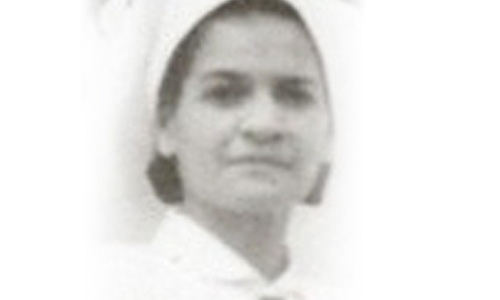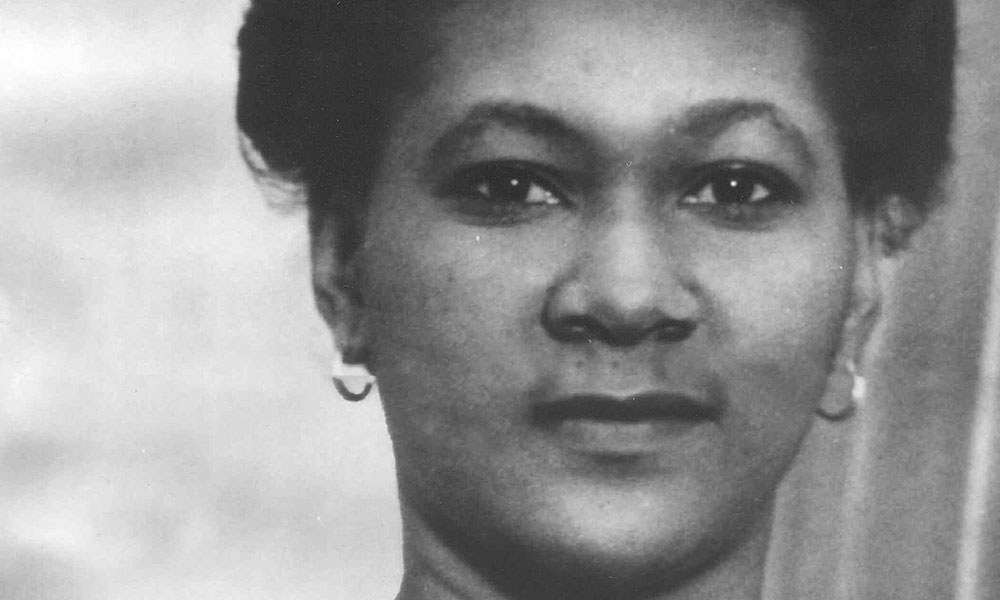
Yvonne May Stevens was born on the 28th May 1910 into the large family of James Henry Stevens and his wife Ethlinda Leonora nee Penn. Her father was at the time, the Master of the Leper Home in Sandy Point but by 1914 the family had moved to Nevis where he held the post of Assistant to the Surveyor on that island.
May grew up in a disciplined close-knit house hold that valued family and education. In her teens she developed an interest in nursing and was encouraged in her ambitions by her father. Mrs. Stevens however did not like the work and made her objections abundantly clear to her daughter. Young May would not be deterred and with her father’s support enrolled in the nursing programme at the Elizabeth Garett Anderson Hospital in London. This was a time when the position of Matron in the Caribbean was held by a British woman. May Stevens was determined to change all that. She completed her diploma as a State Registered Nurse and stayed in England during part of the war years to ensure she had a proper grounding in the profession. At the time London was under regular bombardment by the German Luftwaffe.
Miss Stevens returned to St. Kitts to take up the post of District Matron in 1942. This branch of nursing was still in its infancy on the island. In due course Stevens was employed as Matron at the Glendon Hospital in Montserrat. Then in 1949, she was appointed Matron of the Cunningham hospital in St. Kitts. She was the first person born in the Presidency of St. Kitts-Nevis-Anguilla to hold the position. This meant that Stevens was responsible for the day to day management of the hospital and the training of nurses. Because student nurses also functioned as members of staff, training was, at times, sporadic. To enable her to administer the final General Nursing examination locally, she was given the opportunity to attend a Sister Tutor’s Course at the Royal College of Nursing.
The discipline of her youth was reflected in her approach to her new job. She expected nurses to be professionally attired, and observant of hospital rules even if this meant the withdrawal of privileges formerly enjoyed by the upper classes of Society. She was also aware that her own performance was under a microscope and that there were those who were looking for excuses to criticize her skills and abilities. However she stuck to her course putting the interest of the patient first and the encouragement of her nursing staff a very close second. The education of nurses was a priority. In 1960 she worked with the Chief Education Officer to facilitate evening courses in Mathematics and English for nurses willing to sit the General Certificate of Education and she sought scholarships for staff nurses who showed leadership potential.
May Stevens’ whole life was centered on the hospital and she earned the respect of her staff, physicians, health workers, patients and the community in general. On retirement in 1967, Stevens returned to Nevis where she continued her involvement in healthcare through her work with the Red Cross. She was honored for her commitment to nursing in 1969 and in 1999.




